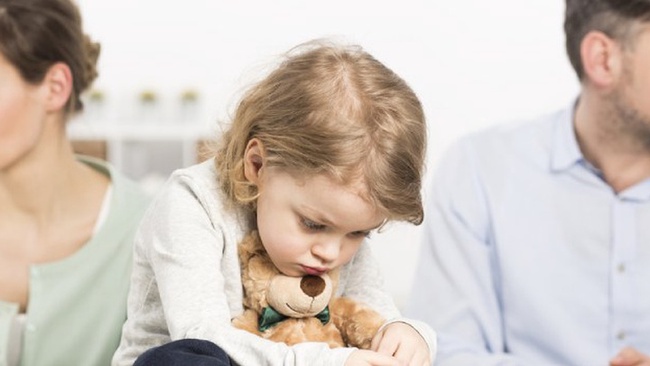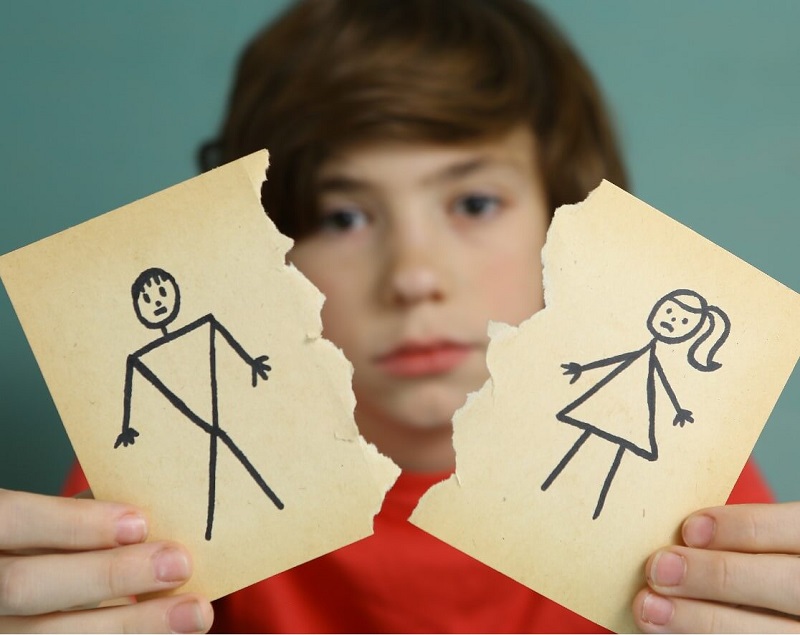Divorced parents: Wounds are hard to heal

Some children cannot return to normal psychological state after their parents divorce.
However, many children gradually get used to the changes in life.
Great disturbance
When a marriage falls apart, some parents ask questions such as: “Should we work together for the sake of the kids?”. However, many parents realize that divorce is the only option.
What are the psychological effects of divorce on children? That depends on many factors. Parental divorce can be stressful for all children. However, some children recover faster than their peers. The good news is that parents can take steps to reduce the psychological impact of divorce on their children.
Studies have shown that children have the most difficulties in the first year or two after their parents divorce. Children can be distressed, angry, anxious, and distrustful. However, many children gradually get used to the changes in life. Others, however, never seem to truly return to “normal”. This proportion of children can often experience problems, even for life, after their parents divorce.
Divorce creates emotional turmoil for the whole family. With children especially, the situation can be quite scary, confusing and frustrating. Divorcing parents also means that children will have less time to see their father or mother. Less contact affects the parent-child relationship. According to a paper published in 2014, researchers found that many children feel less close to their fathers after a divorce.
According to the Pew Research Center, about 40% of new marriages in the US in 2013 included a previously married spouse. Meanwhile, 20% of new marriages where both partners have experienced a breakdown. That means many children suffer from constant changes in the family. Adding a step-parent and possibly a sibling is a big adjustment.

It is important to help children communicate positively, feel the warmth of their parents.
High rate of depression
According to Dr. Carly Snyder, a psychiatrist in New York, divorced parents can increase the risk of mental health problems in children and adolescents. Regardless of age, gender and culture, children of divorced parents face many psychological problems.
Specifically, divorce can cause adjustment disorders in children. However, the problem can go away on its own within a few months. However, studies have also found higher rates of depression and anxiety among children of divorced parents. In addition, children from divorced families may experience more external problems, such as conduct disorder, delinquency, and impulsivity. Children may also experience more conflicts with their peers after their parents divorce.
“Children from divorced families do not always do well in school. A study published in 2019 found that children from divorced families tend to have trouble with school if their parents divorce unexpectedly.
Adolescents and adolescents whose parents are divorced are more likely to engage in behaviors such as drug use and early sex. In the United States, teenagers and young adults with divorced parents drink alcohol earlier. These people also used more alcohol, marijuana, tobacco and drugs than their peers. According to a study published in 2010, adolescents and young adults whose parents divorced when the child was under 5 years old were at higher risk of having sex before the age of 16.
“Parents play an important role in how children adjust to divorce. Intense parent-child conflict has been shown to increase child distress. Excessive conflict, such as shouting and threatening each other, has been linked to behavioral problems in children. However, even minor stress can increase a child’s feelings of distress. If you’re having trouble raising children with your ex-spouse, seek professional help,” suggests Ms. Snyder.
Maintain a healthy relationship
Besides, this expert warned, children who are stuck in the middle of their parents are more likely to suffer from depression and anxiety. Therefore, it is important to help children communicate positively, feel the warmth of parents. That can help children adjust better after their parents’ divorce. A healthy parent-child relationship has been shown to help children develop higher self-esteem and do well in school after a parent’s divorce.
Parents are also encouraged to establish age-appropriate rules for their children. A study published in 2011 found that effective discipline methods after a parent’s divorce reduced the rate of delinquent children and improved school performance. Parents also need to pay attention to what their children are doing, as well as who they spend their time with. Empowering children is also essential. Because children who doubt their ability to cope with change and see themselves as victims are more likely to have mental health problems. Therefore, parents should teach their children that divorce is very difficult. However, children have enough mental strength to overcome.
“Children who have positive coping strategies, such as problem solving and cognition, are better able to cope with parental divorce. Teach your children how to manage their thoughts, feelings, and behaviors in a healthy way. Helping your child feel loved and safe can reduce a child’s risk of mental health problems.”
at Blogtuan.info – Source: Afamily.vn – Read the original article here



